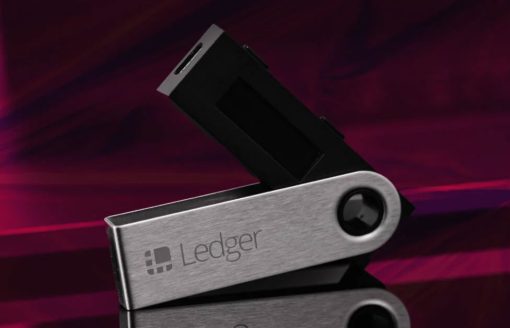The CFTC alleged Binance offered unregistered crypto derivatives products and directed U.S. customers to evade compliance controls through the use of VPNs.
The U.S. Commodity Futures Trading Commission (CFTC) sued crypto exchange Binance and founder Changpeng Zhao Monday on allegations the company knowingly offered unregistered crypto derivatives products in the U.S. against federal law.
The lawsuit, filed in the U.S. District Court for the Northern District of Illinois on Monday, alleged that Binance operated a derivatives trading operation in the U.S., offering trades for cryptocurrencies including bitcoin (BTC), ether (ETH), litecoin (LTC), tether (USDT) and Binance USD (BUSD), which the suit referred to as commodities. The suit also alleged that the company, under CZ’s leadership, directed its employees to spoof their locations through the use of virtual private networks.
Stay in the know on crypto by frequently visiting Crypto News Today
The CFTC is charging Binance with violating laws around offering futures transactions, “illegal off-exchange commodity options,” failing to register as a futures commissions merchant, designated contract market or swap execution facility, poorly supervising its business, not implementing know-your-customer or anti-money laundering processes and having a poor anti-evasion program.
The price of bitcoin fell around $1,000 after the lawsuit was first filed, while Binance’s exchange token BNB fell about 3%. Crypto-related stocks also fell after the suit was published.
According to the CFTC, the global exchange, which has a U.S. affiliate in Binance.US, created a system to hide its true reach and operations.
“Binance’s reliance on a maze of corporate entities to operate the Binance platform is deliberate; it is designed to obscure the ownership, control, and location of the Binance platform,” the filing said, adding that “Zhao answers to no one but himself.”
In a press release, CFTC Chief Counsel Gretchen Lowe called Binance’s actions “willful evasion of U.S. law,” pointing to internal chats and emails.
Moreover, the suit alleged, Binance directed customers in the U.S. to use a variety of methods to evade restrictions on U.S-based customers.
“Binance has instructed U.S. customers to evade such controls by using [virtual privacy networks] to conceal their true location,” the suit alleged. “VPNs have the effect of masking an internet user’s true IP address. VPN use by customers to access and trade on the Binance platform has been an open secret, and Binance has consistently been aware of and encouraged the use of VPNs by U.S. customers.”
The company directed important customers such as trading firms to set up shell companies in places such as Jersey, the British Virgin Islands and the Netherlands to avoid restrictions, the filing said, to escape restrictions, and was fully aware of the scale of its U.S. business.
“Binance knew that U.S. customers continued to comprise a substantial proportion of Binance’s customer base,” the filing said, citing internal monthly reports sent to Zhao, which said that, even as of June 2020 after controls had supposedly been implemented, 17.8% of customers were based in the U.S.
Stay in the know on crypto by frequently visiting Crypto News Today
Without commenting on any of the specific allegations in the suit, a Binance spokesperson said the company has “made significant investments over the past two years to ensure we do not have US users active on our platform,” including growing its compliance team from 100 to 750 people and spending $80 million on KYC and other compliance vendors and tools.
“The complaint filed by the CFTC is unexpected and disappointing as we have been working collaboratively with the CFTC for more than two years. Nevertheless, we intend to continue to collaborate with regulators in the US and around the world. The best path forward is to protect our users and to collaborate with regulators to develop a clear, thoughtful regulatory regime,” the spokesperson said.
The Binance spokesperson said the exchange now maintains “country blocks for anyone who is a resident of the U.S.” and blocks “anyone who is identified as a U.S. citizen regardless of where they live in the world.” The exchange also blocks U.S. cell providers and IP addresses, as well as U.S. bank accounts, the spokesperson said.
Internal chats
The filing pointed to internal chats between Binance employees, including Samuel Lim, the exchange’s chief compliance officer through January 2022 (who is also a defendant), where Lim appeared to direct an employee to ask U.S. customers to hide their location.
“On the surface we cannot be seen to have U.S. users but in reality we should get them through other creative means,” Lim allegedly said.
Nevertheless, the suit alleged the exchange was well aware that sanctioned entities and individuals from sanctioned regions were trading on its platform, sharing chat logs where Lim said that “terrorists usually send ‘small sums’” that are “barely” enough to purchase weapons with. He said other customers were “here for crime,” according to the laesuit.
Binance directly tasked an employee to be a “Money Laundering Reporting Officer” (MLRO) to write a report claiming its compliance audit was stringent to hide how poor its compliance program actually was from business partners like Paxos, the suit alleges.
“As part of this audit, the Binance employee who held the title of Money Laundering Reporting Officer (‘MLRO’) lamented that she ‘need[ed] to write a fake annual MLRO report to Binance board of directors wtf,’” the suit said. “Lim, who was aware that Binance did not have a board of directors, nevertheless assured her, ‘yea it’s fine I can get mgmt. to sign’ off on the fake report.”
The officer said in 2020 that they “HAZ NO CONFIDENCE IN OUR GEOFENCING,” the suit said.
The CFTC is asking the court to enjoin Binance from further violations of the Commodity Exchange Act, as well as civil monetary penalties, trading and registration bans and disgorgement.
Zhao, the founder of the exchange, tweeted “4,” referencing a previous tweet where he said that would mean to “ignore FUD, fake news, attacks, etc.”
In listing the CEO as a defendant, the suit alleges he was the “direct or indirect owner of entities that have engaged in proprietary trading activity on the Binance platform,” and was likewise the “direct or indirect owner of approximately 300 separate Binance accounts” that engaged in prop trading on the Binance trading platform.
The suit was likely expected by Binance. In February, the exchange’s chief strategy officer, Patrick Hillman, admitted Binance was being investigated by multiple regulators and expected to pay fines to “make amends” for past regulatory violations.
According to the suit, Binance employees, including Zhao, used the Signal app with an “auto-delete functionality” to communicate with each other.
The suit implied the CFTC had access to the CEO’s phone, saying it was able to collect Signal text chains and group chats from it.
Tokens as commodities
By identifying so many major tokens as commodities in the complaint, the CFTC may be staking out new ground in the jurisdictional question at the heart of the U.S. crypto sector: Who is responsible for overseeing crypto trading?
For its part, the Securities and Exchange Commission (SEC) has made its view clear that most tokens are actually securities, and Chair Gary Gensler often says that every crypto token apart from bitcoin seems to fit its definition. CFTC officials have often suggested that bitcoin and ether are likely commodities, but they’re additionally maintaining that litecoin and the stablecoins tether and BUSD are as well. The SEC has previously suggested that BUSD is a security in a Wells Notice sent to Paxos.
Gensler has specifically suggested that proof-of-stake tokens – a category now including ether – are securities that should be registered and regulated by the SEC. But the agency hasn’t yet pursued enforcement actions to set that view in stone, and U.S. legislation that may offer a more permanent answer is still remote.
CFTC Chair Rostin Behnam had promised last month that his agency would pursue a “strong year of precedent-setting cases,” and he’s also been pushing for Congress to more securely set up the CFTC as a leading watchdog for crypto trading in the U.S.
After the collapse of the FTX exchange, U.S. lawmakers said they’re eager to move forward on bills to address the largely unregulated crypto sector. Some of them have been focusing specific concern on Binance.
Earlier this month, U.S. senators, including Sen. Elizabeth Warren (D-Mass.), sent a letter to Zhao calling his company “a hotbed of illegal financial activity that has facilitated over $10 billion in payments to criminals and sanctions evaders,” and saying it’s been marked by “increasingly disturbing allegations regarding the legality of its operations.” The lawmakers demanded information about the company, its structure and its balance sheets.
cftc_v_binanceIn the absence of former rival FTX, the industry has been left with a shorter list of major exchanges on which to do business, led globally by Binance. Another of the most prominent in the U.S., Coinbase, is similarly facing regulatory scrutiny from the SEC, which has warned the exchange that a significant enforcement action is likely on the way. If U.S. regulators seek to shut both Binance and Coinbase down for violating securities and commodities laws, there’s little reason to expect the same accusations wouldn’t be leveled at their smaller competitors for conducting the same types of activity.![]()
Read More at COINDESK
Please Read Essential Disclaimer Information Here.
© 2024 Crypto Caster provides information. CryptoCaster.world does not provide investment advice. Do your research before taking a market position on the purchase of cryptocurrency and other asset classes. Past performance of any asset is not indicative of future results. All rights reserved.
Contribute to CryptoCaster℠ Via Metamask or favorite wallet. Send Coin/Token to Addresses Provided Below.
Thank you!
BTC – bc1qgdnd752esyl4jv6nhz3ypuzwa6wav9wuzaeg9g
ETH – 0x7D8D76E60bFF59c5295Aa1b39D651f6735D6413D
MATIC – 0x7D8D76E60bFF59c5295Aa1b39D651f6735D6413D
LITECOIN – ltc1qxsgp5fykl0007hnwgl93zr9vngwd2jxwlddvqt





